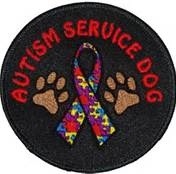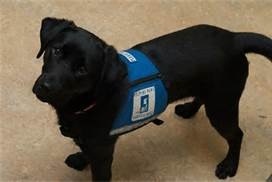Training Your Own Service Dog

My family has decided to train our very own service dog. We are looking to start this process some time next year. My family chose to train an animal to become one of a growing number of autism service dogs because we can’t afford to pay for one, the average cost to have a service dog is $9,000 and $11,000 and we don’t want to be put on a waiting list, that could take years. Often the application process is lengthy, and rightfully so. But we know our son and we were prepared to take this on. Below, I have listed things to look for when selecting a dog to train.
According to the Americans with Disabilities Act (ADA), a service animal is a dog that is individually trained to do work or perform tasks for people with disabilities. ADA, 42 USC Part 12100 (http://www.ada.gov/service_animals_2010.htm)
That’s all. Notice that it doesn’t say the dog must be certified or licensed. It just has to be individually trained to do work or perform tasks for someone with a disability. It should be noted that dogs whose sole function is to provide comfort or emotional support do not qualify as service animals under the ADA. See the 2010 Revised Requirements that went into effect March 15, 2011.
Criteria for the right dog:
• Up-to-date on shots & heart worm pills
• Good with children
• Good with other pets, including cats
• Calm cool disposition
• Fixed (spayed or neutered)
• Couldn’t be too young or too old
• Housebroken
• Great overall health
• Not an “alpha” dog
• NOT expensive
• Not too big or too small
• Easy to walk on a leash
• Pays attention and is eager to please
The Right Attire:
ADA does not specify that autism service dogs, or any kind of service animal, must wear a vest in public. It’s purely a courtesy. But before we began taking Without the vest it would have been awkward and we would have found ourselves explaining and defending our service animal a lot.
Of course, before you take your service dog make certain that your dog will heel and sit and obey you.
It is also a good idea to get register your service dog. Few states require formal registration and identification of service dogs. However, proof of registration makes it possible for people with disabilities to self-identify and to be able to identify their service dogs. This can help minimize discrimination and alert others to the fact that a disability may exist, even if it is not readily apparent.
Adequate identification documents can help when traveling with a service dog, and when needing admission to businesses, restaurants and other public places, or in the event of entering a shelter during a disaster. Several organizations offer registration of service dogs and handlers, and in most cases it is free of charge. Here is a link for free registration http://www.usservicedogregistry.org/


